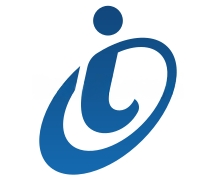
Are you considering an adventurous road trip from Nigeria to South Africa? The prospect of traversing the diverse landscapes of the African continent is undoubtedly exciting.
In this comprehensive guide, we will explore the possibilities and challenges of traveling from Nigeria to South Africa by road. Let’s dive straight into the question many avid travelers are asking: Can I travel from Nigeria to South Africa by road?
Answering the Question: Yes, it is possible to travel from Nigeria to South Africa by road. However, it’s crucial to understand the intricacies and plan meticulously for a smooth journey.
The road trip offers a unique opportunity to witness the beauty and diversity of the African continent, but it also comes with its own set of challenges.
related article 7 Easy Ways to Move to Canada from Nigeria
Route from Nigeria to south Africa
- Lagos to Cotonou – The Starting Point: Embark on your journey from Lagos, Nigeria, and head towards Cotonou, Benin. Ensure that your documents, including passports and visas, are in order for a seamless border crossing.
- Crossing Benin and Togo: Navigate through Benin and Togo, experiencing the vibrant cultures and landscapes of these West African countries. Pay attention to road conditions and be prepared for occasional border delays.
- Entering Ghana: Ghana welcomes travelers with its rich history and warm hospitality. Explore key attractions along the way, such as Accra and Cape Coast, before continuing your journey southward.
- Navigating through Ivory Coast: As you progress through Ivory Coast, formerly known as Côte d’Ivoire, take in the sights of Abidjan and Yamoussoukro. Be aware of potential challenges on the roads and plan your stops accordingly.
- Crossing into Liberia and Sierra Leone: Crossing into Liberia and Sierra Leone requires thorough planning. Check border regulations and travel advisories, ensuring a hassle-free transit through these West African nations.
- Guinea and Guinea-Bissau: Continue your road trip through Guinea and Guinea-Bissau, embracing the cultural richness and natural beauty these countries have to offer.
- Senegal – The Gateway to North Africa: Senegal serves as a crucial gateway to North Africa. Explore Dakar and its surroundings before crossing into Mauritania.
- Traversing the Sahara Desert: The journey through the Sahara Desert demands careful preparation. Ensure your vehicle is equipped for desert travel, and carry sufficient supplies for the challenging terrain.
- Entering Morocco: Morocco marks the transition from West to North Africa. Enjoy the cultural mosaic of cities like Marrakech and Casablanca before crossing into Algeria.
- Crossing Algeria and Tunisia: Navigate through Algeria and Tunisia, appreciating the historical significance and natural wonders these countries offer. Be attentive to road conditions and potential challenges.
- Arriving in Libya: Libya presents its own set of challenges due to geopolitical factors. Stay informed about the current situation and assess the feasibility of crossing into Egypt.
- Crossing Egypt and Sudan: The final leg of your journey involves crossing Egypt and Sudan. Explore the ancient wonders of Egypt before navigating through Sudan, heading towards the border with South Sudan.
- Entering South Sudan and Uganda: Continue your journey through South Sudan and Uganda, marveling at the diverse landscapes and cultures.
- Crossing into Kenya and Tanzania: As you enter Kenya and Tanzania, the road trip takes you closer to your destination. Explore iconic landmarks like Mount Kilimanjaro and the Serengeti National Park.
- Arriving in South Africa: The last stretch of your journey takes you through Zambia, Zimbabwe, and Botswana before finally arriving in South Africa. Revel in the beauty of Cape Town or Johannesburg, depending on your chosen route.
Challenges and Considerations: While the prospect of a road trip from Nigeria to South Africa is enticing, it’s crucial to be aware of potential challenges. These may include:
- Visa Requirements: Research and obtain the necessary visas for each country on your route.
- Border Crossings: Be prepared for varying border crossing procedures and potential delays.
- Road Conditions: Some regions may have challenging road conditions, requiring a sturdy and reliable vehicle.
- Security Concerns: Stay informed about the security situation in each country and plan your route accordingly.
- Documentation: Ensure all your travel documents, including vehicle registration and insurance, are up to date.
How Much is Nigeria to South Africa By Road
While the prospect of such a road trip is exciting, many travelers often wonder about the cost involved in making this cross-border journey.
Let explore the estimated prices of transportation fares and provide a list of transport companies that operate on this route.
Estimated Transportation Fares: The cost of road travel from Nigeria to South Africa can vary depending on several factors, including the mode of transportation, the class of service, and the route taken. As of the latest information available, here are some estimated prices for different modes of transportation:
- Bus Services:
- Luxury buses: Approximately $150 to $250 USD
- Standard buses: Around $100 to $150 USD
- Personal Vehicles:
- Fuel costs: Expect to spend approximately $400 to $600 USD on fuel, depending on the vehicle’s fuel efficiency and the route taken.
- Flights:
- While road travel is the primary focus, it’s worth noting that flights are also an option for covering long distances quickly. Flight prices can vary widely, with economy class tickets ranging from $500 to $1,500 USD or more.
Transport Companies: Several reputable transport companies operate on the Nigeria to South Africa route, providing various options for travelers. Here is a list of some well-known companies:
- God is Good Motors (GIGM):
- GIGM is a popular Nigerian transport company with a strong presence in interstate travel. They offer comfortable buses and operate on major routes.
- ABC Transport:
- ABC Transport is known for its reliable services and has a network that extends to different parts of Nigeria.
- Peace Mass Transit:
- Another reliable option, Peace Mass Transit, provides transportation services to various destinations, including those along the route to South Africa.
- The Young Shall Grow Motors:
- This transport company has a long-standing reputation for providing safe and comfortable travel experiences.
What is South Africa’s Currency?
South Africa’s currency is the South African Rand, abbreviated as ZAR, with the symbol “R.” The Rand is the official currency of the Republic of South Africa and is also used in the Common Monetary Area, which includes Lesotho, Namibia, and Eswatini. Introduced in 1961, the Rand has been a key part of South Africa’s economy, facilitating trade, investment, and day-to-day transactions.
A Brief History of the South African Rand
The Rand was introduced in 1961, replacing the South African pound. It was introduced when South Africa became a republic and moved away from the British colonial system. The name “Rand” is derived from the Witwatersrand (“White Waters’ Ridge”), the ridge upon which Johannesburg is built and where most of South Africa’s gold deposits were found.
Denominations of the Rand
The Rand is available in both coins and banknotes. The coins are denominated in 1, 2, 5, 10, 20, and 50 cents, as well as R1, R2, and R5. The banknotes come in R10, R20, R50, R100, and R200 denominations.
Each coin and note has unique designs featuring important symbols and figures from South Africa’s history, including Nelson Mandela, who appears on all banknotes as a mark of respect and recognition of his role in the country’s history.
Conversion to Dollar and Euro
The value of the Rand fluctuates against other currencies, including the US Dollar (USD) and the Euro (EUR). Currency exchange rates are influenced by various factors such as economic performance, political stability, and market speculation.
As of the most recent exchange rates:
- 1 US Dollar (USD) is approximately equal to 19 ZAR.
- 1 Euro (EUR) is approximately equal to 21 ZAR.
These rates are subject to change due to market conditions. It’s always a good idea to check the latest rates before making any conversions.
Factors Affecting the Rand’s Value
Several factors can influence the value of the South African Rand:
- Economic Indicators
- Economic growth, inflation rates, and employment figures can impact the Rand’s value. Strong economic performance typically strengthens the Rand, while economic challenges can weaken it.
- Political Stability
- Political events and stability in South Africa can affect investor confidence and, consequently, the Rand’s value. Political uncertainty or instability can lead to a decline in the currency’s value.
- Global Market Trends
- As a commodity-based economy, South Africa’s currency is influenced by global commodity prices, particularly gold and platinum. Fluctuations in these markets can impact the Rand.
- Interest Rates
- The South African Reserve Bank’s interest rate decisions can affect the Rand. Higher interest rates can attract foreign investment, strengthening the currency, while lower rates can have the opposite effect.
How to Convert ZAR to USD and EUR
Converting South African Rand to US Dollars or Euros can be done through various methods:
- Currency Exchange Services
- Banks, exchange bureaus, and online currency exchange platforms offer conversion services. These services typically charge a fee or offer a slightly lower exchange rate than the market rate.
- Credit and Debit Cards
- Using international credit or debit cards can provide competitive exchange rates. However, be aware of any foreign transaction fees your card issuer may charge.
- Online Platforms
- Online platforms such as XE, TransferWise, and PayPal offer currency conversion services. These platforms often provide real-time exchange rates and can be a convenient option for online transactions.
- Mobile Apps
- Several mobile apps allow you to convert currencies on the go. Apps like XE Currency and Currency Converter Plus can help you keep track of exchange rates and perform conversions easily.
Practical Tips for Currency Conversion
- Compare Rates
- Before converting large amounts of money, compare rates from different providers to ensure you get the best deal.
- Check Fees
- Be aware of any fees associated with currency conversion, whether through banks, exchange bureaus, or online platforms.
- Use ATMs Wisely
- When traveling, using ATMs to withdraw local currency can be convenient and offer favorable rates. However, check with your bank regarding any foreign ATM fees.
- Monitor Exchange Rates
- Keep an eye on exchange rates, especially if you need to convert a significant amount of money. Rates can fluctuate daily, and timing your conversion can save you money.
Conclusion: Embarking on a road trip from Nigeria to South Africa is a remarkable adventure that offers a unique perspective on the diverse landscapes and cultures of the African continent.
While the journey presents challenges, meticulous planning and a spirit of adventure can make it a once-in-a-lifetime experience. So, if you’re up for the challenge, start planning your epic road trip from Nigeria to South Africa today! Safe travels!







Your article helped me a lot, is there any more related content? Thanks! https://www.binance.info/es-AR/register?ref=UT2YTZSU